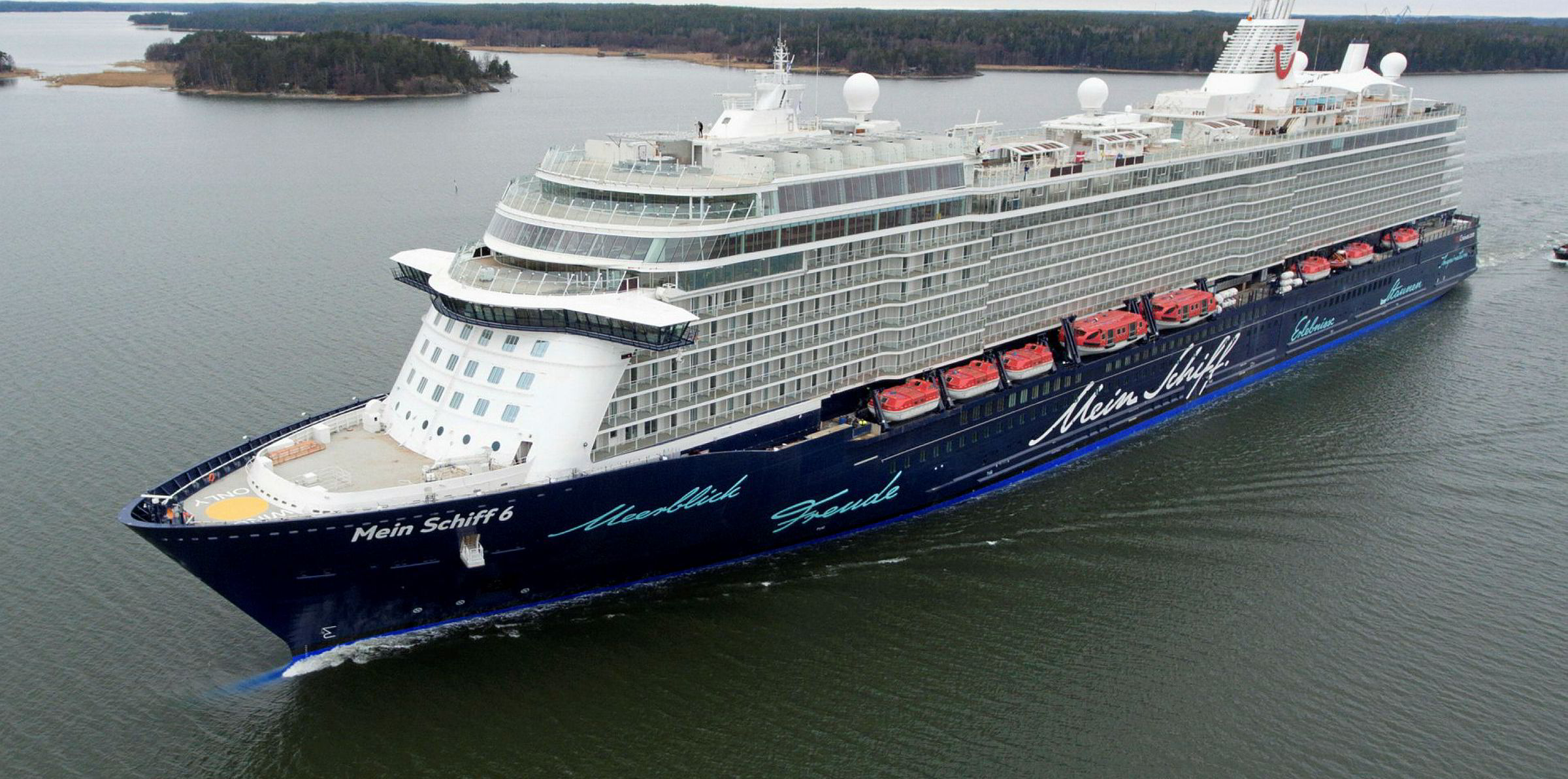German shipping is heading for a "deep crisis" that poses a risk to the survival of a large number of companies.
That is the bleak message from the country's shipowners association, VDR, which has revealed the severe effects of the coronavirus pandemic through a survey of its members.
The organisation warned the pandemic could have more serious consequences than the 2008 financial crash — and could even put the country's role as a shipping location in jeopardy.
The survey involved 50 companies, including almost all the top 30 in terms of tonnage.
The crisis is increasingly severe, members told the VDR.
Cruiseships and ferries were seriously hit from the beginning, but now almost all sectors are being heavily impacted, according to shipowner and VDR president Alfred Hartmann.
Respondents said their revenue dropped between 30% and 40% in March and April.
And 44% of companies are already seeing a substantial impairment of their liquidity.
The survey also shows that German shipowners have noted charter rate drops of as much as 60% in all segments.
Further declines expected
A further decline is anticipated in the coming months, the VDR said.
“The survey is a snapshot, it reflects the status of the first several months,” Hartmann said. “In view of the severe collapse forecast for global trade, the market situation for maritime shipping is expected to escalate even further.
"This means that substantial segments of the German merchant fleet are foreseeably endangered in their existence."
The 2008 crash hit German shipping hard, with 1,500 ships departing, equal to one-third of the fleet.
In the short run, the VDR said owners will need unimpeded access to aid measures from KfW, the German state-owned development bank.
So far, the support measures have not yet materialised to the required degree, the association added.
"As most German shipping companies are small to medium-sized enterprises [SMEs], they face extinction without effective support being provided under the KfW programmes," Hartmann said.
Banks not cooperating
But he revealed banks were refusing to forward applications for assistance to KfW "even though they would only need to bear a small residual risk and have themselves been supported with huge amounts of taxpayers’ money in the past — an absolutely intolerable situation".
Tens of thousands of jobs could go if another third of the fleet is lost, the association said.
German owners have introduced part-time working and austerity measures, but redundancies are so far not being planned at more than 90% of companies.
Vocational training has not been reduced either, with two-thirds of respondents planing to recruit the same number of apprentices and trainees as in the previous year.
"The shipping companies are committed to fostering budding talent in spite of the crisis. Everyone is making an attempt to retain their employees along with their maritime expertise," Hartmann said.
"Whether we will succeed in maintaining this policy will also depend on the extent to which concrete support and assistance will be available in this severe crisis."
The VDR also urged the government not to impose further taxes on the sector.
But it reiterated the need for continued research into green shipping solutions.
Shipyards appeal as well
The German Shipbuilding and Ocean Industries Association (VSM) also warned of the effects of the pandemic.
"Considering the weakness of the shipbuilding market since 2016 with the global newbuilding orderbook remaining more than 40% below production over the past four years — this additional drop in demand will severely worsen the current underutilisation of the world’s shipbuilding capacity," the group said.
"Cancellations of confirmed orders could further exacerbate the situation. Intensified price dumping practices and subsidy races can be observed already today."
Germany has about 2,800 companies and 200,000 people working in the sector.
The VSM said it would campaign for "a temporary fleet renewal programme".
This would be based both on public contracts, like coastguard, police, fire brigade, research vessels and public transport, and on incentives for environmentally friendly commercial ships.
"The purpose of this initiative is to compensate for at least some of the expected loss of demand so as to prevent an uncontrolled breakdown of the entire sector," the shipyard group said.






